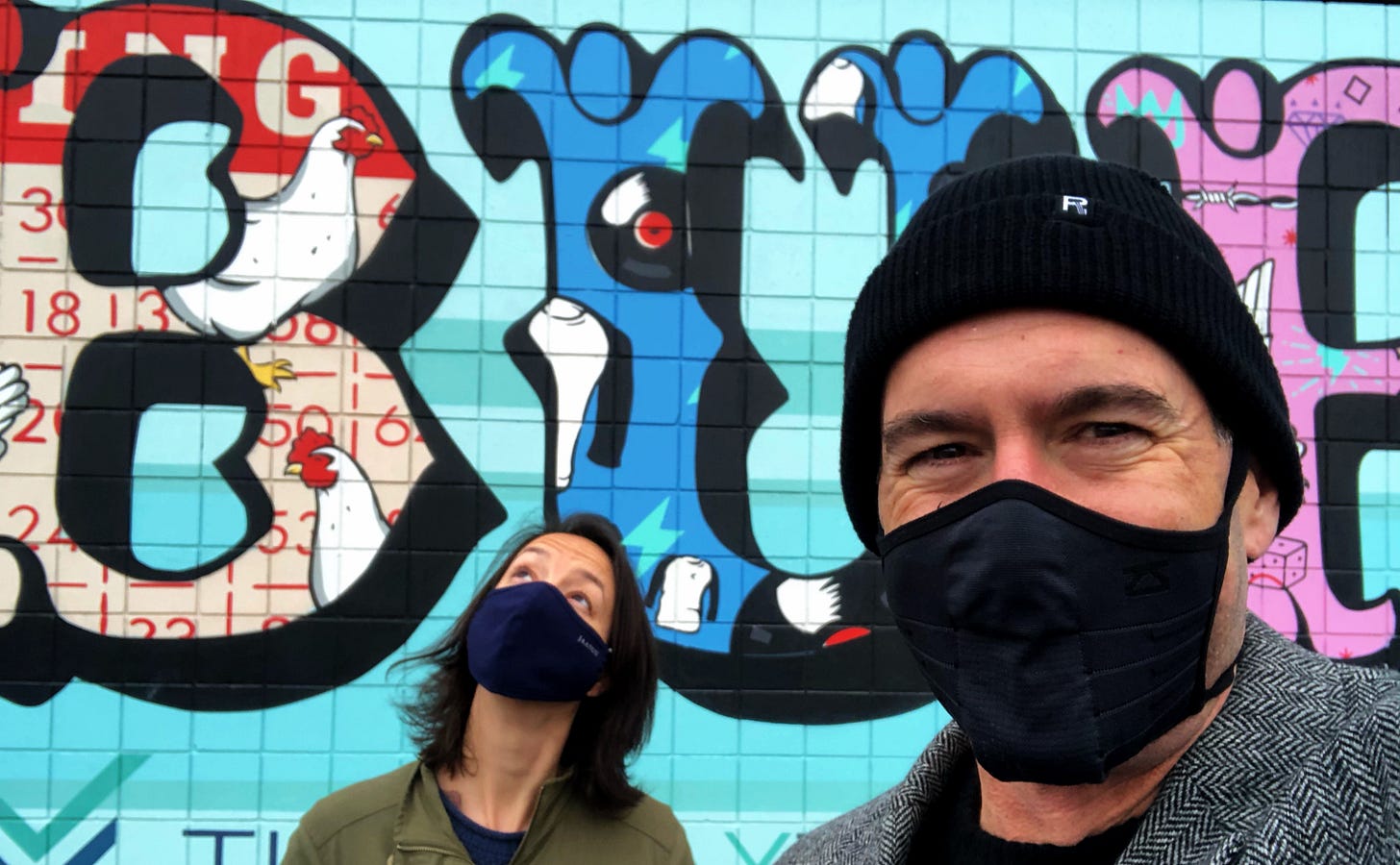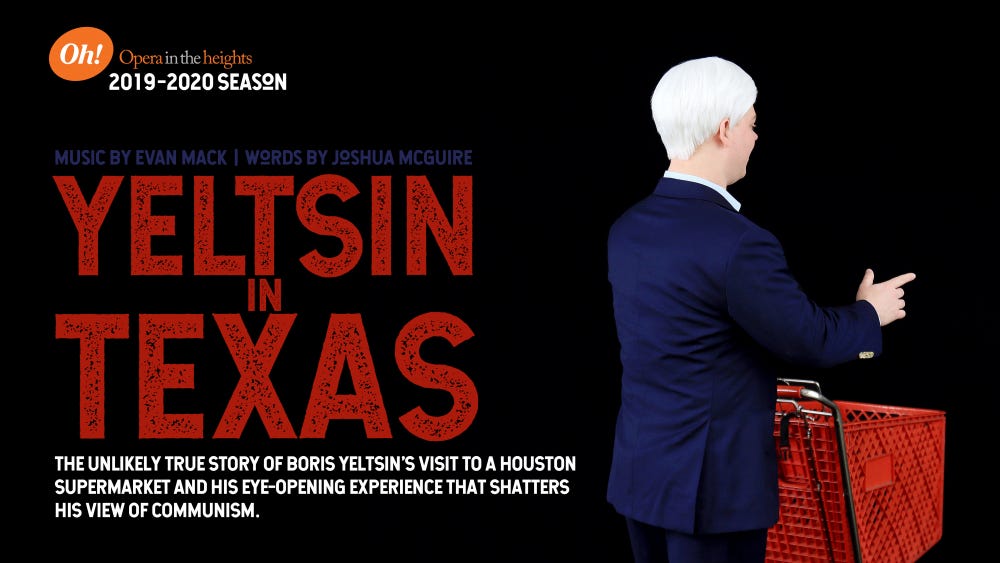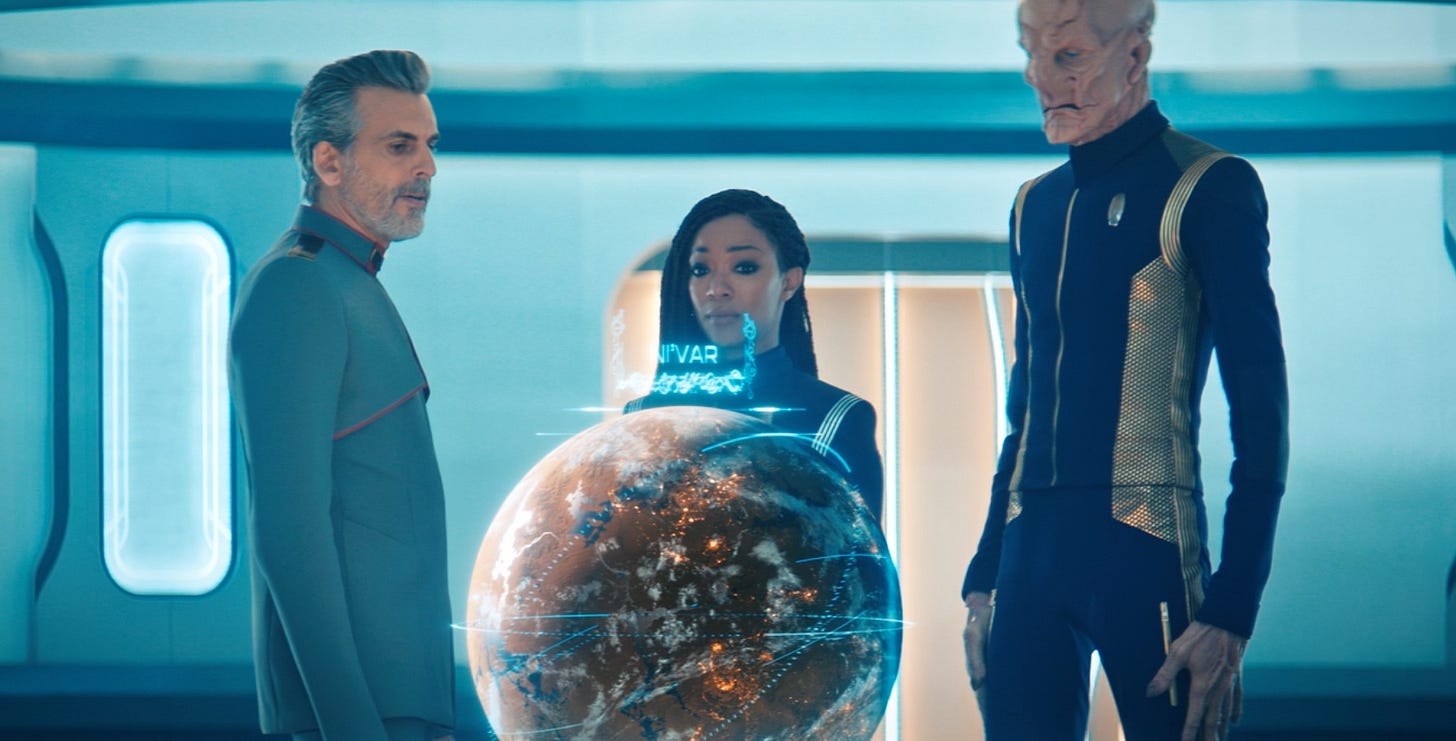Mann oh Man
When he was as old as I am now, my friend and I took three strange trips
Welcome to The Experiment, where we’ve had a week, y’all. Jack Hughes has the completely bonkers and totally true story about how Texas won the Cold War in “Who Got JR?” Rachel Megan Barker feels unaccountably miserable since Joe Biden won in “Physical Feelings.” And Sonia Van Meter plumbs new depths of Star Fleet lore in her latest Star Trek: Discovery episode recap in “Come Again.”
And as always, we remember who we’ve lost and suggest things to do (getting e-charisma), read (Tim Alberta reports on shenanigans in Michigan), see (Fargo season 2), and listen to (Tierra Whack is so much fun).
But first did I ever tell you my Bob Mann stories?
Don’t worry. These stories are OK. To know Bob Mann was to know the unvarnished truth behind the explanation he once gave for not running for office. “I was divorced, talked loud in bars and pursued women with vigor,” he said, understating matters considerably. Ken Herman’s excellent send-off for Bob, who died this week at the age of 76 after coming down with a nasty case of Alzheimer’s disease, covered the polite-company basics: beloved journalism professor, well-traveled reporter and editor, behind-the-scenes government official, and, most notably and enduringly, press secretary for Senator Ted Kennedy.
He was sensitive about his height, of which there was not a lot. Jokes about his stature would light a fuse, but there’s just no way to write around that detail for the simple fact that he could have been a garbage man and he still would have seemed outsized. He was shorter than most adult women, and you would literally look down upon meeting him but soon realize that you were dealing with more than you’d bargained for. The little guy was a lot.

There was a dead body on the first trip I took with Bob.
In 1993, he flew to Moscow to visit his friend Billy Rogers, my editor at the English-language magazine I wrote for right after college. One night they thought it would be great fun to hop a train to Nizhny Novgorod, the city formerly known as Gorky where Andrei Sakharov was sentenced to internal exile with his wife Yelena Bonner after his opposition to the Soviet invasion of Afghanistan. The city had recently been opened to foreigners, and Billy and Bob thought taking a train to the recently forbidden city sounded like an adventure, except for one thing: Neither of them spoke Russian.
I did, which is why I got invited to tag along. Our train dumped us out in Nizhny Novgorod late at night in the dead of winter. We flagged down a car and paid the driver a tiny sum to find us a hotel. There must have been a very sad convention in town, because all the hotels were booked.
Finally, he remembered the floating hotel docked in the Volga River. Our driver went in to check for vacancy. When he returned, he closed the car door and looked a little shaken.
“Do they have rooms?”
“Yes.”
“Can we go in?”
“Just wait.”
This wasn’t brutish Russian rudeness. He looked scared, so we sat for a while until Billy and Bob got impatient and insisted we go into the lobby, which is when we walked the plank.
The gangplank connecting the dock to the boat was wooden, narrow, and covered with ice, and it sloped down sharply over black water about a dozen feet below. I would have to hold a bag in one hand while holding a wobbly rail with the other, leaving me no extra hands to slap some sense into myself. My friend Robin once described Russia as the opposite of a Public Service Announcement, and even by Russian standards this seemed dangerous.
Boy, I bet some people have fallen into the water from here, I thought.
Then we entered the lobby and discovered how right I was. Two men, soaked to their miserable bones, were lying on the lobby’s carpeted floor. One of them, I was sure, was dead or at least heading that way. He made no sound or movements, but he looked downright peaceful next to his sodden companion, who moaned and writhed but gave every appearance of being capable of improvement if he got some medical attention. Soon two paramedics showed up, quickly surveyed the scene, and loaded the dead-looking fellow onto a stretcher and asked us all to help them carry him to the ambulance. Soon, Billy and I found ourselves crowded on the gangplank with the paramedics carrying a dead man on a stretcher.
Eventually we got the second fellow into the ambulance with his dead friend and ourselves checked into the hotel. As careful readers of The Experiment know, seeing dead bodies was not uncommon in Russia in the early ‘90s. I’d seen a few on busy streets, lying there, waiting to be picked up by some government worker who hadn’t been paid in months. And we never expected anything in Moscow to make sense. That might be why more than two decades passed before the following thought occurred to me:
Why didn’t they take care of the guy who was alive first?
***
The second trip I took with Bob was in 1995 when he moved from Virginia back to Texas. He needed someone to drive a 26-foot U-Haul truck while he drove his red Miata, and I, not knowing any better, thought this sounded like fun. And besides, this would be my chance to go to the Orioles new ballpark that had just opened up. The day I arrived would be a day game. I figured it would be easy to get tickets.
Reader, if you’re starting to see a pattern of a lack of awareness, you’re ahead of where I was back then. We drove straight from the airport to Camden Yards to discover that yes, the game was of course sold out.
Bob, who did not care about sports in the slightest, was undaunted. If we couldn’t get in through the front door, we’d try a side door. Bob asked for directions to the business office.
“Just don’t say anything,” he said, sizing me up, adding, “Look Russian.”
Inside, he pulled a worn business card from his bygone days in Kennedy’s employ and, in a loud, confident, and cheesy Kennedy accent, introduced himself as the Senator’s current press secretary and asked to see someone in charge. (Later he told me that if you work for a Kennedy, everyone assumes you talk like a Kennedy.)
“Good day,” he told a perplexed middle manager type, who looked down at this outsized personality shoved into a diminutive body and wondered what he’d gotten himself into. “This he-ah,” and here he gestures to me, standing there in pleated khakis, a chambray button-down Gap shirt, and a red Patagonia windbreaker, “is the son of Dmitri Shahstahkav, the Russian fahreign ministah.” I, clearly not the Russian son of anyone, was in town, Bob loudly proclaimed, and wanted to take in a real American baseball game. Would it be OK, he asked, lowering his voice only slightly to feign the intimacy of an asked favor, if I could take a look around?
The poor man had no choice in the matter, really. Bob had so committed to the bit that the guy had to conclude either that he was dealing with a crazy man or Ted Kennedy’s honest-to-goodness press secretary. Either way, waving us in and get back to work was his easiest and safest option.
It was a perfect day. The sun was shining, the sky was blue, and the beer was cold. The Orioles won, but I remember nothing else of the game. I bought Bob beers until he was ready to go. Nothing on the field could equal what he’d done.
***
I don’t remember why we ended up on our third trip together. My memories begin in a suburban Houston roadhouse. We’d become roommates by this time, which means it was around 1996. Instead of heading straight back to Austin, he convinced me to stop by this bar because he knew an old girlfriend nearby. And in fact he did, and this woman brought along a teenage girl she was babysitting. We drank beer while she drank a Coke while listening to Bob tell of adventures both grand and occasionally true.
At one point we got up to dance. I, raised in a place called Not Texas, had never two-stepped before, but I looked at all the people gliding around the floor and deemed something that looks easy must in fact be easy. One of my strongest memories of that decade is the pitying, sweet smile that girl gave me when I realized I did not know what to tell my feet to do and admitted as much to her.
At some point the party broke up, and Bob gave me directions. After some time, it became obvious that he had no intention of telling me, the Texas neophyte, how to get home. He was taking us elsewhere.
“Bob, where are we going?”
“We’ll know it when we find it,” he said. “But first, we gotta get lost. It’ll be where we weren’t looking.”
We kept going in directions he seemed to choose for no other reason than amusement. He was not lost. In fact, he was as good as his word. We found what we were not looking for only once we became completely lost. On a trip to Austin, we ended up on the GulfCoast in a tiny town called Palacios. And right across the street from the water, of course, was the Luther Hotel, the oldest hotel in Texas. We roused the innkeeper and, finding no bodies on the floor, asked for a room.
I am as old now as he was then. He had a full life after our times together, getting back into Texas politics and state government before becoming a lot of peoples’ favorite professor. I would bring him lunch every once in a while as he got older but not nearly as often as I thought about it. All I have now are hazy memories of a few years a quarter century ago, when so much life was packed into that one man. I have forgotten more stories about Bob Mann than I remember, and I’m grateful for the ones that remain.
Rest in peace, Bob.
Who Got JR?
by Jack Hughes
This Jack Hughes, the senior assistant Canadian bureau chief, Tex-splains The Experiment how Texas won the Cold War all on its own. It starts with Dallas, the prime-time soap opera, and ends with Boris Yeltsin’s visit to a Houston grocery store. The most unbelievable detail in this story is that a Randall’s convinced Yeltsin that communism had failed. Whole Foods, I’d believe. H-E-B, definitely. But Randall’s?
I’m in no way suggesting Putin is anything like J. R. Ewing. J. R. was a cold, calculating, and utterly ruthless character who’d do anything to anyone he saw as a potential threat to his oil empire.
Physical Feelings
by Rachel Megan Barker
Are you one of those who are feeling weirdly awful since Joe Biden was declared the winner of the election and the savior of humanity? Rachel Megan Barker is right there with you, and she has thoughts.
Come Again?
by Sonia Van Meter
Sonia Van Meter finds our hero searching for home in the latest episode of Star Trek: Discovery and finding herself. Tears were shed.
That last statement nearly knocked the wind out of me. The most logical, rational race in the galaxy so convinced of something that can be easily disproved? It’s impossible. Simply impossible. But then I remember we come from a culture with people that believe vaccines are dangerous because of a single and thoroughly discredited study amidst a landside of other studies that prove them safe. If we want to believe something badly enough, and if we are emotionally beholden to the idea as a fundamental component of our identity, all the data in the world won’t convince us otherwise.
Who we’ve lost
This French president
My friend’s mom
How we’re getting through this
Getting e-charisma
Finding my place in the vaccine line
Making Thanksgiving leftover enchilada pie
Making white chicken chili with turkey leftovers
What I’m reading
Tim Alberta: “The Inside Story of Michigan’s Fake Voter Fraud Scandal” - Tim reporting of this election has been superb, and this is a shining example.
The irony of Michigan’s electoral meltdown is that Election Day, in the eyes of veteran clerks and poll workers across the state, was the smoothest it had ever been. Like clockwork, one can always depend on controversies—sometimes mini-scandals—to spring up by noontime on any given Election Day. But not in 2020. There were no documented instances of voter intimidation. No outcry over precincts opening late or closing early. Heck, in the state’s biggest and busiest voting jurisdictions, there were no lines to complain about. The day was eerily uneventful.
Jill Gutowitz: “Why Abby Absolutely Should've Ended Up With Riley In Happiest Season” - Team Rabby all the way
I’ve finally found my hill to die on, and it’s Aubrey Plaza in a booth at a gay bar.
Ross Ramsey: “Despite vaccine hopes, lawmakers plan for more months of pandemic” - The Texas capital could become a hot zone.
They have two ideas in their heads, just like the rest of us. And while they wait for the vaccines, their attention is on keeping the pandemic at bay.
WaPo: “20 days of fantasy and failure: Inside Trump’s quest to overturn the election” - Some good reporting from Crazytown here.
“Not only did our institutions hold, but the most determined effort by a president to overturn the people’s verdict in American history really didn’t get anywhere,” said William A. Galston, chair of the governance studies program at the Brookings Institution. “It’s not that it fell short. It didn’t get anywhere. This, to me, is remarkable.”
WaPo: “No game days. No bars. The pandemic is forcing some men to realize they need deeper friendships.” - Sexism isn’t super great for men, either.
For more than a decade, psychologists have written about the “friendship crisis” facing many men. One 2006 analysis published in the American Sociological Review found that while Americans in general have fewer friends outside the family than they used to, young, White, educated men have lost more friends than other groups.
What I’m watching
Season 2 of Fargo, the television adaptation of the Coen Brothers movie, is one of the best seasons of any show I’ve ever seen. Patrick Wilson and his perfectly constructed yet bland visage suits his character perfectly. Ted Danson is terrific. Kirsten Dunst and Jesse Plemons are terrific together. And if you can imagine Glen Weldon pronouncing this name, you’ll understand how great Jean Smart is in this. Fargo does bottle seasons, that is, each stands alone. If you don’t like violence, skip this. But if you like great television, watch season 2 of Fargo. (It got a 100% rating on Rotten Tomatoes.) In 2014, Pop Culture Happy Hour talked about Fargo when it was a new thing.
What I’m listening to
Tierra Whack has been dropping new songs, and you’ve probably heard one. It’s “feel good,” the song in the latest ad for Apple’s mini. “Peppers and Onions” is great. “Dora” represents a foray into trip-hop. All this’ll put a smile on your face.
What do you think of today's email? I'd love to hear your thoughts, questions and feedback. I might even put ‘em in the newsletter if I don’t steal it outright.
Enjoying this newsletter? Forward to a friend! They can sign up here. Unless of course you were forwarded this email, in which case you should…
Want a way to send gifts and support local restaurants? Goldbelly’s got you hooked up.
I’ve lost 35 pounds since March 2019 with Noom, and haven’t had to cut out any foods. Noom is an app that uses psychology, calorie counting, and measuring activity to change your behavior and the way you think about food. I’m stronger and healthier than I’ve been in years. Click on the blue box to get 20% off.
If this newsletter is of some value to you, consider donating. Honestly, I’m not doing this for the money. I’m writing this newsletter for myself, and for you. And a lot of you are contributing with letters and by suggesting articles for me to post. But some of you have asked for a way to donate money, so I’m posting my Venmo and PayPal information here. I promise to waste every cent you give me on having fun, because writing this newsletter for you is some of the most fun I’ve had. Venmo me at @Jason-Stanford-1, or use this PayPal link.





